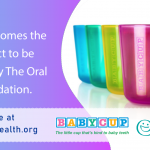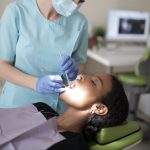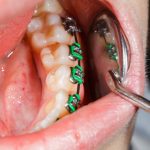The Oral Health Foundation is delighted to announce the first open cup specially designed for infants’ and toddlers’ small hands to gain accreditation from its expert panel.
The charity has given its seal of approval to the Babycup product, which helps aid good oral health in infants by encouraging healthy sipping and natural drinking as well as supporting oral development.
Each product that passes through the charity’s panel of experts is awarded an ‘Oral Health Foundation Approved’ status once their claims have been rigorously checked and effectively verified, including a logo and accreditation document.
Prior to their accreditation, Babycup has won multiple awards – including Made for Mums Editor’s Choice, Prima Baby & Pregnancy Best First Cup, Junior Design Awards Best Baby Feeding Product, and Janey Lee Grace WINNER Best Baby Product – and its small size makes it perfect for little hands. The cup holds 50ml of liquid and has a slim drinking edge designed for young mouths.
The cup is perfect for any infant between 0 – 2.5 years as it can be used right from birth whether you’re express feeding, using formula or a combination of the two. It’s much better for oral development than a traditional Sippy cup because it encourages natural sipping instead of prolonged sucking.
Dr Nigel Carter, Oral Health Foundation CEO and dentist for over 40 years welcomes this partnership.
Dr Carter says: “We welcome this new partnership with Babycup and are happy to provide them with accreditation for their cup product. This is the first free drinking cup for tiny hands to be approved by the panel.
“Developing proper drinking habits at an early age is vital for oral development. Primary [milk] teeth are crucial to jaw development, speech development and adult teeth placement.
“Not taking care of primary teeth can lead to adult teeth growing in crooked, chewing difficulties, facial asymmetries and, most importantly, tooth decay.”
Founder of Babycup Sara Keel is delighted by the Oral Health Foundation’s accreditation.
Sara says: “Receiving the seal of approval from the Oral Health Foundation is a great achievement and recognises the importance of our mini open cups in the eyes of oral healthcare experts. It provides a strong message to parents to choose an open cup when introducing fluids during weaning and gives assurance that Babycup First Cups are perfect for this important stage. Good oral health starts early and we’re pleased that this has been highlighted with this accreditation.”
There are lots more products approved by the Oral Health Foundation for babies, toddlers and young children, head to our Appproved Products page to have a look. To find out more about Babycup visit www.babycup.co.uk.















